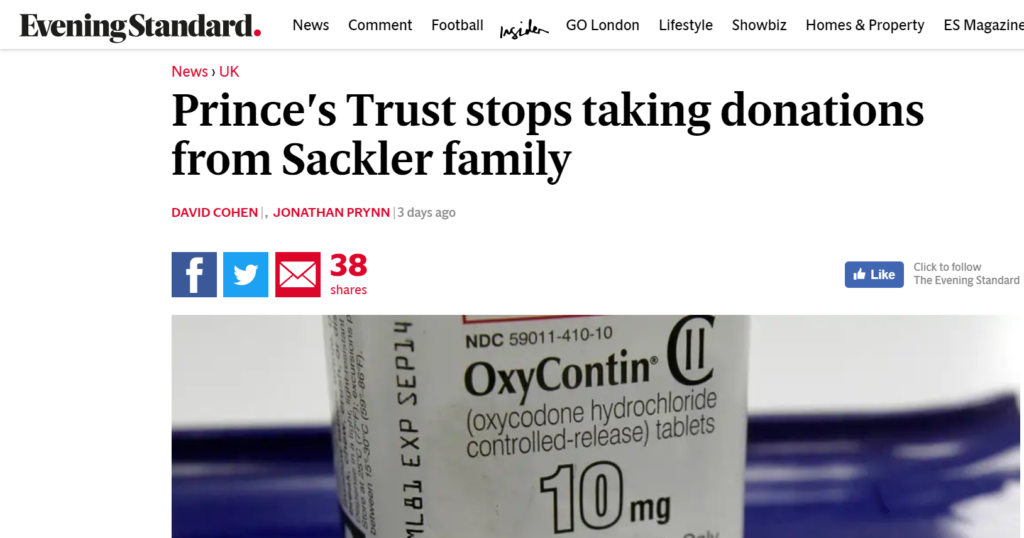The leader of the UK’s Labour Party just took action. “I would, of course, do the right thing and step down.” This is, of course, politics. Kier Starmer’s catchy response to accusations he broke Covid lockdown rules was delivered in order to contrast his integrity with the Prime Minister’s refusal to hold himself to account.
Forget about the recent plan to send single male migrants to Rwanda, or even Brexit, the British government’s most dangerous manoeuvring comes in the form of a single, innocuous word: “job”. As in “But I think the best thing I can do now is, having settled the fine, is focus on the job in hand.” Faced with a police fine for having broken Covid rules (see “Partygate” for those lucky enough not to follow British politics), the party line was clear: the Prime Minister wanted to “deliver on the priorities of the British people”, he was “keen to get back to the job”, and the British people wanted to see the Tory party “getting on with the job”.
This line of argument recalls the well-worn path of politicians, corporations, the Catholic church and, sometimes, just about all of us: the good I do buys me some space for the bad. It’s like carbon offsetting for sins.
Let’s skip back five years. Not long after the World Humanitarian Summit, I was talking to a leader in our sector, a vocal proponent of transferring power to local non-governmental organizations (LNGOs). “Kevin” was an enthusiastic supporter of the Grand Bargain, especially the commitment to deliver a fat chunk of funding directly to local organizations. Turns out, Kevin’s commitment involved a commitment to the idea of localization rather than to an actual substantial shift of responsibility and financial resources. Turns out, his views spoke for much of the sector. Turns out, there was a caveat. The sector’s inequitably powerful and overly Western contingent can bask in the noble glow of being champions of localization while effectively blocking it.
The INGO Kevin worked for – a major player – was committed to the Grand Bargain. Yet, its uppermost commitment is understood as being to people, not the Bargain. Fair enough. But this ‘higher’ commitment has been interpreted to mean that Kevin’s INGO should operationalize localization only if it did not diminish the quality or quantity of aid, and that Kevin’s INGO should be the judge of this potential diminishment.
This was the Grand Bargain’s ideological equivalent of fine print. So much for the slogan says humanitarian work should be “as local as possible and as international as necessary”. There’s a lot of ‘devil’ in the detail of that last bit.” But let’s not enter the “INGO vs LNGO: who can do it better?” debate. The more critical issue is that the arguments of both sides – the pros and cons of local action – share the same underlying logic. This is the logic of effectiveness. Is aid really only about who can do the job better?
Back to the British PM. The danger in Boris Johnson’s declaration recalls the danger we as leaders perpetrate and perpetuate upon our own humanitarian sector. We remove annoying obstacles to our business by rendering ethical principles invisible. The Kevins of our sector can talk endlessly about doing things the right way, about one day doing things in a ‘righter’ way (new evidence-based guidelines are being developed by our global task force!), and about doing things in a ‘righter’ way than local organizations (after all, we must build their capacity on the new evidence-based guidelines).
What the Kevins do not want to talk about is doing the right thing.
Johnson’s apology for transgressions effectively shreds the uppermost responsibility of leadership – to champion the ideals, aspirations, and ethical principles which guide actions, and which unite societies even where there are strong disagreements on the ‘how’ level. Neither British politics nor humanitarian action would be well-served by moral purity, yet the power of both are gutted by excluding ethics from deliberation and decision. We need to think about the politics that has girded decades of constant, directive paternalism; and the presumption this status quo can be justified on the basis of effectiveness and actions. The ethical cost is too high, for instance to the principle of humanity.
People matter because they are not static vessels of need to be filled by our action. Human solidarity is impossible without recognition of the other’s human sovereignty. Being more capable than local NGOs sounds like a logic we tossed out 60 years ago (and it’s an assumption of dubious accuracy as well). Would it have been OK for Britain to maintain rule over Kenya or Sierra Leone on the basis of Her Majesty’s greater technical and economic capacity? That sounds offensive. Why? Because there are principles more important than doing a good job.
